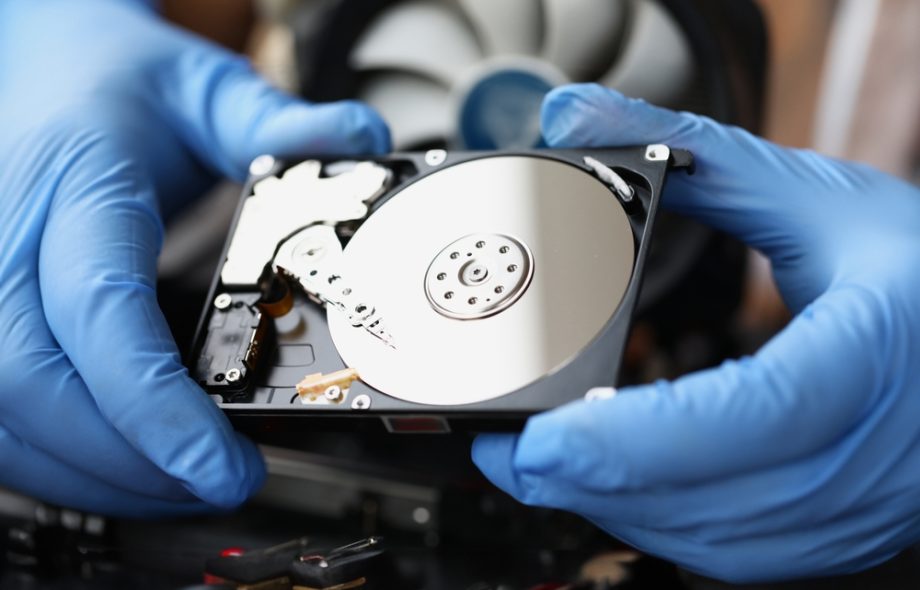A desktop hard drive is one of the most essential components in a computer system. Whether you are a gamer, a professional content creator, or an average user, having a reliable hard drive is crucial for storing files, applications, and operating systems efficiently. With advancements in IT hardware and evolving storage technologies, selecting the right desktop hard drive can greatly impact your computer’s performance and longevity.
Understanding Desktop Hard Drives
A desktop hard drive serves as the primary storage device in a computer. It holds everything from system files to personal documents, making it a critical component of any computer hardware setup. Hard drives come in two main types:
- HDD (Hard Disk Drive): Uses magnetic spinning platters to store data. HDDs are typically more affordable and offer larger storage capacities.
- SSD (Solid-State Drive): Uses flash memory to store data, providing faster read and write speeds, lower power consumption, and enhanced durability.
Choosing between these two depends on your storage needs, budget, and performance requirements.
Key Factors to Consider When Choosing a Desktop Hard Drive
When selecting a hard drive, various factors come into play. Here are some of the most important considerations:
- Storage Capacity: Desktop hard drives are available in a range of sizes, from 500GB to several terabytes. For general users, a 1TB drive might be sufficient, while professionals dealing with large files may require 4TB or more.
- Speed & Performance: HDDs generally operate at speeds of 5400 RPM or 7200 RPM, with the latter offering better performance. SSDs, however, provide much faster speeds, making them ideal for high-performance computing.
- Form Factor & Interface: Most desktop hard drives come in a 3.5-inch form factor and use SATA interfaces. If you’re considering upgrading, ensure your system supports the required connections.
- Durability & Reliability: SSDs tend to last longer than HDDs due to their lack of moving parts. However, a high-quality HDD with good cooling and minimal vibrations can still be a reliable choice.
- Price & Budget: HDDs are more budget-friendly per gigabyte compared to SSDs. If cost is a concern, a hybrid approach with an SSD for the OS and an HDD for bulk storage can be a smart choice.
Why Desktop Hard Drives Matter in IT Hardware
Storage devices are a fundamental part of IT hardware infrastructure. Businesses, creative professionals, and gamers rely on robust hard drives to store and manage data efficiently. Some of the key benefits of a high-quality desktop hard drive include:
- Reliable Data Storage: Essential for safeguarding important files, software, and applications.
- Improved System Performance: A fast and efficient storage device speeds up boot times, application launches, and file transfers.
- Scalability: Desktop hard drives allow users to expand storage as needed, making them ideal for growing data demands.
HDD vs. SSD: Which is the Best Choice for You?
The decision between an HDD and SSD depends largely on your computing needs:
- For Gamers: SSDs provide faster load times, reducing lag and improving overall gaming experiences.
- For Content Creators: Large-capacity HDDs are great for storing high-resolution media files, while SSDs offer better performance for editing and rendering tasks.
- For Everyday Use: A combination of an SSD (for the operating system and frequently used applications) and an HDD (for bulk storage) offers a balance between speed and capacity.
Maintaining and Optimizing Your Desktop Hard Drive
To maximize the lifespan and performance of your hard drive, consider the following maintenance tips:
- Regular Backups: Always back up important data to an external drive or cloud storage.
- Defragmentation: If using an HDD, perform regular defragmentation to keep it running efficiently.
- Firmware Updates: Keep the drive’s firmware updated to ensure optimal performance and compatibility.
- Temperature Control: Avoid overheating by ensuring proper ventilation and cooling in your system.
Future Trends in Desktop Hard Drives
As computer hardware continues to evolve, storage technologies are also advancing. Some emerging trends include:
- NVMe SSDs: Offering even faster speeds than SATA SSDs, NVMe drives are becoming the standard for high-performance storage.
- Increased Storage Capacities: HDDs with 20TB+ capacities are being developed for enterprise and data-heavy applications.
- AI & Cloud Integration: Future storage devices may feature built-in AI for predictive maintenance and better integration with cloud computing.
Conclusion
Choosing the right desktop hard drive is essential for optimizing system performance and ensuring data security. Whether you opt for an HDD, SSD, or a combination of both, considering factors such as speed, capacity, and durability will help you make an informed decision. As IT hardware and storage devices continue to advance, staying updated on the latest developments can help you get the most out of your computer hardware investments.












